Schooling, unschooling or home schooling?
Dear Hiveans,
as I feel like being in a flow of writing about unpopular topics, today: schooling.
I don‘t have strong feelings about that topic but I have strong feelings about bad arguments surrounding that topic.
I / we still have some time to decide for/with our children what to do regarding school. So perhaps this post is directed towards my wife 🫤😉
Social contacts
I often heard that children have no social contacts without school.
- This, per se, is false, of course as it depends on the circumstances of the family.
- And without school, there is also a much lower probability of antisocial contacts. As school is THE place to get into first contact with violence and drugs, one should choose wisely if and what school one's children should attend.
- The argument of "no social contacts" is furthermore a post hoc ergo propter hoc fallacy (wiki). Because we, ourselves, were in school and our contacts in that period consisted mainly of classmates, we conclude that without school we would have no contacts. (another one would be the classic "without the state, who would build the roads?").
- Without school, children have plenty of time to develop their own interests and skills. Contacts may evolve via sports club, chess clubs, interest groups, village or church community, their parents' circle of friends, or the internet (gaming or interest groups).
- How many peers/contacts does a child need? Is it about 30 (as in a class) or are 5 (well-bred / well-behaved) kids good enough or even better? Why should classes be grouped by age (leading to boredom for advanced learners and frustration for struggling ones), not by ability or by interest?
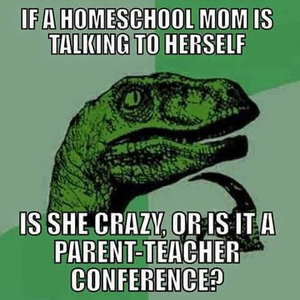
Which content to learn and how to learn?
- Who decides what children should learn? In my opinion this responsibility must lie with the parents. Otherwise we'd get some kind of Marxism where government decides everything from the cradle to the grave. Or are we there yet?
- Though I mostly enjoyed school, there were quite some subjects we had to read or learn that were pointless and annoying. In the subject "German" I continuously got bad grades for essays we had to write about some German author's work (Goethe, Bertolt Brecht, etc.). These works had zero relevance for 10-18 year olds. Today I have earned more money (which is THE criterion/benchmark) for my written essays in German/English than all of my German teachers combined. So who should have taught whom?
- In my opinion parents together with their children should discuss and decide what subjects to dive into. One parenting philosophy I like is "Taking Children Seriously" (TCS, website).
- According to Karl Popper’s and David Deutsch's epistemology, learning is an active process of conjecture and criticism rather than passive absorption. Children are not blank slates who passively absorb information from their environment or from authority figures. Instead, they actively create knowledge through a process of trial and error, forming conjectures (hypotheses) and testing them against reality. Learning happens when children use their creativity to develop new ways of thinking, not just when they follow instructions or imitate others. Thus, I want my kids to engage in meaningful, self-driven exploration (by playing, reading, being curious).
- Another approach I find very interesting is that of Katharine Birbalsingh (also called the Strictest Headmistress in the UK, youtube). This is almost the opposite to Deutsch's approach, as she is known for her strong advocacy of traditional education, discipline (which creates an environment where children can focus on learning without distractions), and knowledge-based learning. She strongly supports a knowledge-rich curriculum, where students systematically learn core subjects (math, science, history, literature) rather than relying on "discovery learning." And she criticizes approaches that prioritize "soft skills" or "student-led learning," arguing that students need explicit instruction and factual knowledge before they can think critically.
Quality of classes / teachers and how to assess children's "performance"
- 90% of my teachers were Baby Boomers and adherents to the protests of 1968 (wiki). Most of them have never seen the real world of work, they got from school class to university class and back to school class. They propagated their communist and environmentalist brainfarts and were not able to prepare their students for real life. Has this gotten better? I doubt it.
- The education system is set up to implicitly warn children against genuine creativity. Children are there, ultimately, to perform well in assessment tasks.
- Should students' performance be measured and if so how? I don't know. I think it's mostly an easy way for teachers to present some quantifiable results (Gaussian distribution) and to classify their students by arbitrary measures.
Books on this topic I found interesting are Slayback's The End of School (goodreads) and Gatto's Dumbing Us Down (goodreads). In the coming weeks I'll read Aaron Stupple's "The Sovereign Child" and more on the TCS website. Then I'll write again on this topic (then as an expert 😉)
What are your thoughts or experiences with schooling?
Have a great day,
zuerich
Memes...
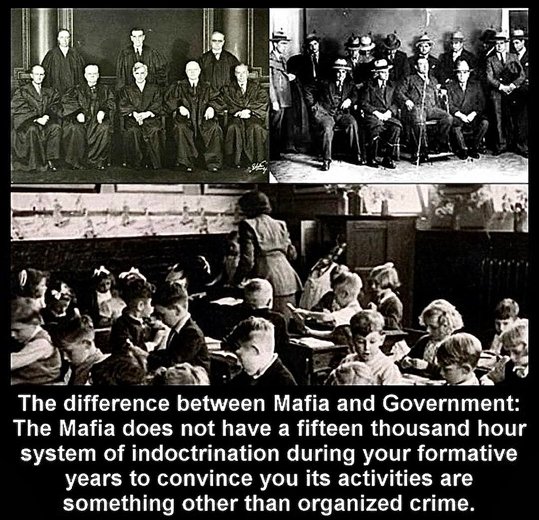
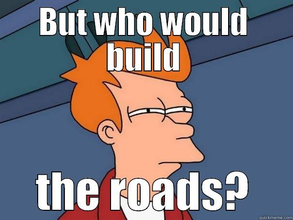
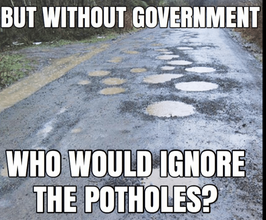
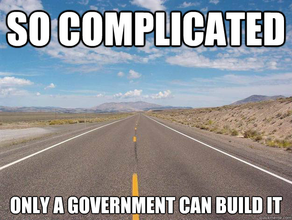
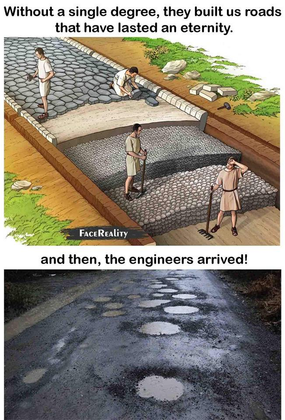
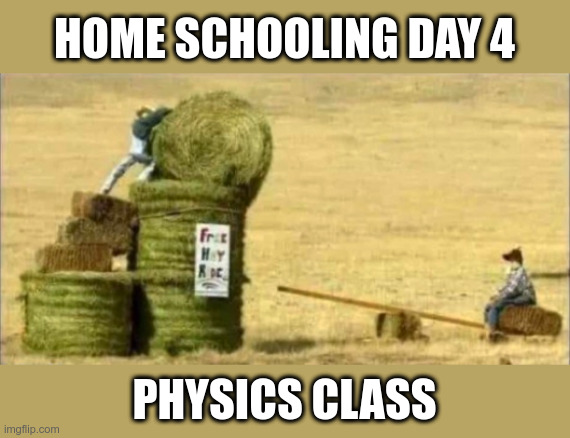
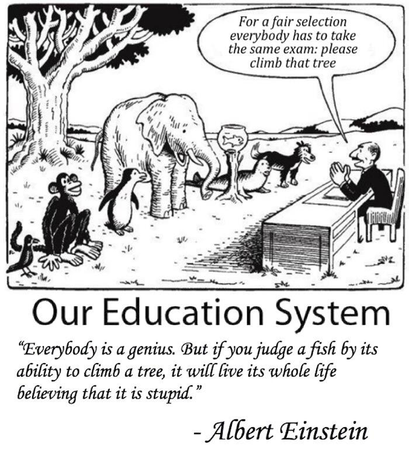
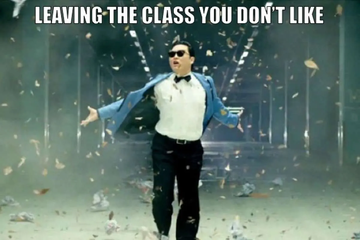

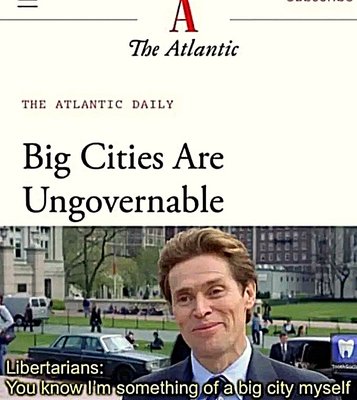

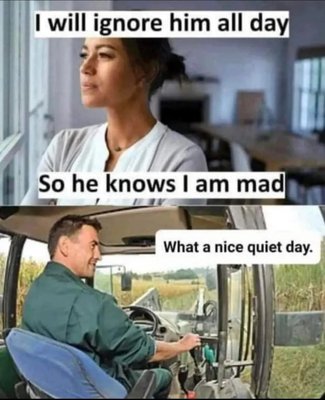




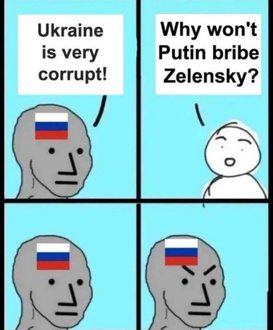
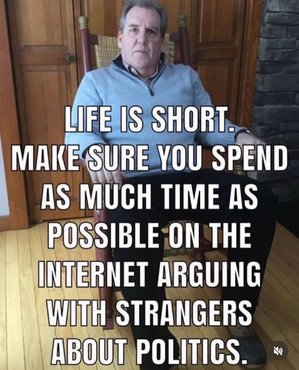

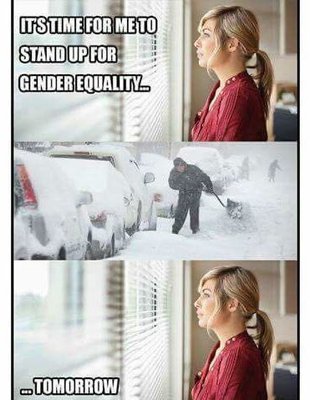
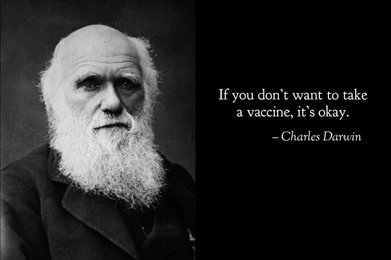
Liebe Hiver,
da ich gerade im Flow bin über unpopuläre Themen zu schreiben, heute: Schule.
Ich habe keine starken Emotionen zu diesem Thema, aber ich habe starke Emotionen bei schlechten Argumenten rund um dieses Thema.
Ich / wir haben noch etwas Zeit, um für unsere Kinder hinsichtlich Schuzle zu entscheiden. Vielleicht ist dieser Post also an meine Frau gerichtet 🫤😉.
Soziale Kontakte
Ich habe oft gehört, dass Kinder ohne Schule keine sozialen Kontakte haben.
- Das ist natürlich per se falsch, denn es kommt auf die Umstände der Familie an (Freundes-, Familienkreis).
- Und ohne Schule ist auch die Wahrscheinlichkeit von antisozialen Kontakten viel geringer. Da die Schule DER Ort ist, an dem man mit Gewalt und Drogen in Berührung kommt, sollte man mit Bedacht wählen, ob und welche Schule die eigenen Kinder besuchen.
- Das Argument der „fehlenden sozialen Kontakte“ ist zudem ein post hoc ergo propter hoc Fehlschluss (wiki). Da wir selbst in der Schule waren und unsere Kontakte in dieser Zeit hauptsächlich aus Mitschülern bestanden, schließen wir daraus, dass wir ohne Schule keine Kontakte hätten. (ein anderes Beispiel wäre der Klassiker „Wer würde ohne den Staat die Straßen bauen?“).
- Ohne Schule haben die Kinder viel Zeit, ihre eigenen Interessen und Fähigkeiten zu entwickeln. Kontakte können über den Sportverein, Schachklubs, Interessengruppen, die Dorf- oder Kirchengemeinde, den Freundeskreis der Eltern oder das Internet (Spiele- oder Interessengruppen) entstehen.
- Wie viele Peers/Kontakte braucht ein Kind? Sind es etwa 30 (wie in einer Klasse) oder reichen 5 (wohlerzogene) Kinder aus oder ist das sogar besser? Warum werden Klassen nach Alter eingeteilt (was zu Langeweile bei fortgeschrittenen Lernern und zu Frustration bei Kindern mit Schwierigkeiten führt) und nicht nach Fähigkeiten oder Interessen?

Welche Inhalte sollen gelernt werden und wie wird gelernt?
Wer entscheidet, was Kinder lernen sollen? Meiner Meinung nach liegt diese Verantwortung bei den Eltern. Andernfalls würden wir eine Art Marxismus bekommen, in dem die Regierung alles von der Wiege bis zur Bahre bestimmt. Oder sind wir schon so weit?
Obwohl mir die Schule meistens Spaß gemacht hat, gab es einige Fächer/Themen, die wir lesen oder lernen mussten, die sinnlos und nervig waren. Im Fach „Deutsch“ bekam ich ständig schlechte Noten für Aufsätze, die wir über das Werk eines deutschen Autors (Goethe, Bertolt Brecht usw.) schreiben mussten. Diese Werke hatten für 10-18-Jährige keinerlei Relevanz. Heute habe ich für meine schriftlichen Aufsätze in Deutsch/Englisch mehr Geld verdient (was DAS Kriterium/Benchmark ist) als alle meine Deutschlehrer zusammen. Wer hätte also wen unterrichten sollen?
Meiner Meinung nach sollten Eltern gemeinsam mit ihren Kindern diskutieren und entscheiden, in welche Themen sie eintauchen wollen. Eine Erziehungsphilosophie, die mir gefällt, ist „Taking Children Seriously“ (TCS, Website).
Nach der Erkenntnistheorie von Karl Popper und David Deutsch ist Lernen ein aktiver Prozess der Mutmassung/Hypothese und Kritik und keine passive Info-Aufnahme. Kinder sind keine unbeschriebenen Blätter, die passiv Informationen aus ihrer Umgebung oder von Autoritätspersonen aufnehmen. Stattdessen schaffen sie aktiv Wissen durch einen Prozess von Versuch und Irrtum, indem sie Vermutungen (Hypothesen) aufstellen und diese an der Realität überprüfen. Lernen geschieht, wenn Kinder ihre Kreativität nutzen, um neue Denkweisen zu entwickeln, und nicht nur, wenn sie Anweisungen befolgen oder andere nachahmen. Deshalb möchte ich, dass meine Kinder sinnvolle, selbstgesteuerte Entdeckungen machen (spielen, lesen, neugierig sein).
- Ein anderer Ansatz, den ich sehr interessant finde, ist der von Katharine Birbalsingh (wird auch als strengste Schulleiterin im UK bezeichnet, youtube). Das ist fast das Gegenteil von Deutschs Ansatz, denn sie ist bekannt für ihre starke Befürwortung der traditionellen Bildung, der Disziplin (die ein Umfeld schafft, in dem sich Kinder ohne Ablenkung auf das Lernen konzentrieren können) und des wissensbasierten Lernens. Sie befürwortet nachdrücklich einen wissensbasierten Lehrplan, bei dem die Schüler systematisch Kernfächer (Mathematik, Naturwissenschaften, Geschichte, Literatur) lernen, anstatt sich auf das „entdeckende Lernen“ zu verlassen. Und sie kritisiert Ansätze, die „Soft Skills“ oder „schülergesteuertes Lernen“ in den Vordergrund stellen, und argumentiert, dass Schüler explizite Anweisungen und Faktenwissen benötigen, bevor sie kritisch denken können.
Qualität der Klassen / Lehrer und wie man die „Leistung“ der Kinder bewertet
- 90 % meiner Lehrer waren 1968er (wiki). Die meisten von ihnen haben nie die reale Arbeitswelt gesehen, sie sind von der Schulklasse zur Universitätsklasse und zurück zur Schulklasse gekommen. Sie propagierten ihre kommunistischen und umweltpolitischen Hirnfürze und waren nicht in der Lage, ihre Schüler auf das wirkliche Leben vorzubereiten. Ist das besser geworden? Ich bezweifle es.
- Das Bildungssystem ist so aufgebaut, dass es die Kinder implizit vor echter Kreativität warnt. Die Kinder sind letztlich dazu da, bei Prüfungen gut abzuschneiden.
- Sollte die Leistung der Schüler gemessen werden und wenn ja, wie? Ich weiß es nicht. Ich denke, es ist vor allem eine einfache Möglichkeit für Lehrer, einige quantifizierbare Ergebnisse zu präsentieren (Gauß-Verteilung) und ihre Schüler nach willkürlichen Maßstäben zu klassifizieren.
Bücher zu diesem Thema, die ich interessant fand, sind Slaybacks The End of School (goodreads) und Gattos Dumbing Us Down (goodreads). In den kommenden Wochen werde ich Aaron Stupples „Das souveräne Kind“ und mehr auf der TCS-Website lesen. Dann werde ich wieder über dieses Thema schreiben (dann als Experte 😉 )
Was sind Eure Gedanken oder Erfahrungen mit der Schule?
Have a nice day,
zuerich
Memes...





















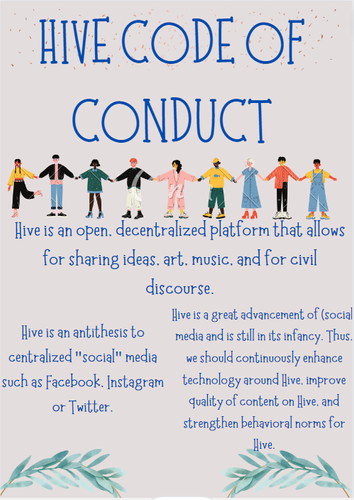
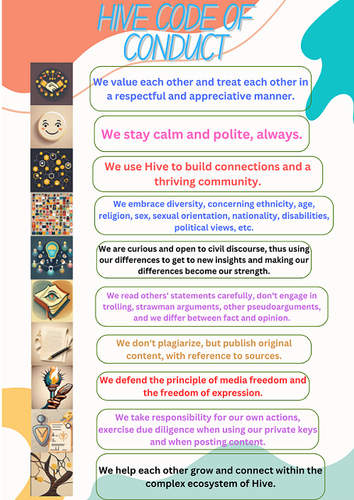

😂
Ein wichtiges Thema, insb. wenn die eigenen Kinder noch nicht in die Schule müssen. Meine sind zum Glück (fast) durch ohne Schäden :)
Du gehst von der irrigen Annahme aus, unser Schulsystem wäre dazu da, den Kindern sinnvolles Wissen beizubriungen. Es ist aber stattdesen dazu da, aus kreativen Menschen mit riesigem Potenzial angepasste Mitbürger zu machen, die gut arbeiten können und keine Fragen stellen. Nur so wird verständlich, wie unsere Schulen ticken.
Also wenn Du die Möglichkeit hast, die Kinder selbst zu unterrichten, tue es!
Denke mittlerweile auch kritischer als früher über Schule aus etlichen von dir genannten Gründen. Nur hat man zB. in Deutschland leider gar keine Wahl. Schulpflicht. Andererseits gibt es schon auch ich einige sehr gute und engagierte Pädagogen, nur das System Schule als ganzes ist sehr träge und wenig agil/flexibel. Warum müssen alle im gleichen Alter das gleiche lernen? Da fehlt häufig die Wahlfreiheit. Und Werte wie Unternehmertum und Kreativität werden zuwenig gefördert.
Denn die Schule muss alle dazu drängen, gleichzeitig mit demselben Lehrplan einen Mindeststandard zu erreichen. Schulen können keine maßgeschneiderte Ausbildung anbieten, die für jeden Schüler optimiert ist.
Das können nur Eltern.
Note: I do not speak German, and have used an online translator. I hope I have understood your meaning, and enabled you to understand mine. I apologize for any grammatical or translational errors.
Yes and no. As you likely know, there is a right way and a wrong way, usually more than one of both, to do things. When someone isn't available to show you the right way, like Anne Lowe was to show me how to field dress a deer in <3 minutes, then you definitely need the ability to figure out how to do it. However, we can muddle through and manage to achieve something despite not doing so in the most efficient or productive way, and if we never learn the right ways to do things, we can stick to doing them poorly all our lives. Forcing such a fate on our kids is terrible to contemplate, so we should avail them of specific knowledge they can measure by their abilities to reason and compare to other means, making sure to enable them to maintain open minds so that they can become right when they discover they have been wrong.
I homeschooled my kids who are highly regarded professionals in fields they have chosen and taught themselves to excel in because I provided them a practical education in how to build, repair, and maintain structures, as well as field work in biology, and self-guided IT and networking by assembling and maintaining a home network, amongst other things. The thing I consider my greatest achievement is enabling them to gamify any and every task. I showed them how to enjoy doing the dishes one day when they had spent three hours miserably malingering at it. I told them to step back and watch while I did their chore for them, which they haply did.
I pointed out, as I busily tackled the job, that they had spent hours in misery and getting nothing done at all, ensuring they'd spend the maximum time possible on the task they least wanted to spend any time at. Then I asked them if they treated things they really enjoyed, like videogames, that way, dawdling, bitching, and complaining about taking out the level bosses, collecting loots, gaining perks and items, dragging everything out as long as possible, trying to avoid getting any quest done, and etc. They laughed.
As I finished wiping down the counters, I pointed out that the dishes were all done and the whole kitchen was clean from top to bottom, that I'd be well pleased by such a well done job (and I always rewarded them for going above and beyond minimum requirements), and if they'd have tackled it like I had, they'd have been playing video games hours ago. Then I pointed out that any job you challenge yourself to do as well and quickly as possible is just like a video game, invokes the same mental circuits, and even better, improves the skill with which they would apply their physical and mental capabilities, which would reward them all their lives in every challenge they faced, including goals they chose and wanted to achieve very much for themselves.
I never saw them so dawdling and malingering that way again.
TCS sounds great, like sustainable development. But there are rhetorical devices that throw buzzwords around and seek to fool people into enabling overlords to maximize profits from farming them, and actual sustainable agriculture, construction, and civic planning that is real sustainable development. Our kids, like all living creatures, are designed to acquire the necessary skills and abilities to adult, to prosper, and reproduce. They are literal sponges for a variety of skills and realizations that are critical to being the kind of people they want very much to be. When you approach curricula from that perspective of a parent seeking to maximize the evolutionary success of offspring, you can provide education that kids will savor, enjoy, and maximally benefit from.
Attending to their interests can enable you to realize what really matters, because nothing so educates someone as teaching others. When my kids showed interest by asking questions about things like astronomy, native Americans, and so forth, I considered those things to have triggered their evolutionary imperative to acquire skills and competence to be the men they wanted to be, so I taught them how to learn what they wanted to know, because I could die at any minute and they needed to have that competence all their lives. I required them to write reports on such matters, but never more than a page, because communicating in writing is critically important in civil society, and brevity is the soul of wit. The more concisely one can communicate in writing, the more effectively one can reach their readers.
I am an expert in homeschooling, because of all the things I have ever set out to do in life, raising my sons I have best succeeded at. I hope these thoughts enable you to far exceed my achievements as a father. However, I suspect you know you will fall short of your desired level of achievement every single day you parent, and you will regret failing to achieve such levels for the rest of your life, as all parents always have and always will. The persons our children are form in the womb. Their character and talents are genetic. If we manage to feed, clothe, and shelter our kids until they are competent to provide for themselves, they will take it from there and we will have succeeded to reproduce successfully, which is the real standard we must meet. If we manage to inspire them, to enable them to find joy in their lives, and provide them the tools to gain what knowledge and skill is necessary to achieve their goals that they decide they want to achieve, that is the ultimate peak of parental achievement.
That requires knowing who our kids are, because we can't make them into people they weren't born. We can only enable those people they are to be as competent to attain to their definition of joy and peace as is possible to who they are.
Aim for that, rather than specific knowledge, skill levels you think are important, or what you think will earn the most money. You are not them. Money isn't wealth. You can buy some kinds of wealth with money, but money will never be edible, will never burp half digested milk down the back of your neck and bring you that joy that is real wealth.
Good luck, but better wisdom.
Good humor here, @zuerich:
Good thing you are writing this on a censorship proof blockchain. 🤔 Oh WAIT! Hahaha ... Or not ... 😉
Seriously, there are very few more important topics than the education of our children. While I can't speak for Europe (or Switzerland), I can speak with some authority on how this is going in America. Very poorly ...
Why?
Largely due to the monopoly of the State on the education of our children. To the point where there literally are adults who can apparently comfortably accept the fact the State can make decisions about their children, without their consent. Or even their awareness ...
Good grief!
Thankfully, there have always been some alternatives, with more or less grudging legal protection, which varies from state to state. With President Trump's recent decisions, this will all be put to the most important test in my lifetime. Ideally, resulting in what we might call a "free market" of options from which parents can choose.
As a veteran of the existing homeschool and private school options available where we lived, I am biased. But we never wanted the State to dictate their terms to us about our biggest responsibility.
All the best to you and your beloved, as you face your version of this fundamental responsibility, for the future of your children there.
P.S. I could easily write a post or two to provide input to many of the points you make in your post. I will only add a very succinct comment on the one which seemed to always trip up like-minded parents here the most.
What is that?
In whatever way it is expressed, the argument about needing to go to school to be ... "socially well adjusted." This is just garbage. And false. Figuring out how you and your beloved are going to raise your children to successfully stand against peer pressure, alone if necessary, is one of the greatest challenges you will almost certainly face.
!LOL
Posted using MemeHive
lolztoken.com
She said because it won't sit still.
Credit: minopoly
@zuerich, I sent you an $LOLZ on behalf of memehive
(2/10)
NEW: Join LOLZ's Daily Earn and Burn Contest and win $LOLZ
😄
I don't know about your family, but in my family women shovel snow, put together swimming pool motors, change tires, etc. etc. etc. 😇
As for schools, I read about the way Marie Curie educated her daughters. She dreaded sending them to traditional school so she got together with other scholars. These formed a cooperative, where the kids would travel to the scholars and be schooled in their specialties.
Also, Rabindranath Tagore founded a school very similar to what you describe:
It's a really important decision. Good luck!!
Your comment is upvoted by @topcomment
Info - Support - Discord
Thank you @commentreward and @friendlymoose
Women here also shovel snow, but rather seldom.
I forgot, that you had your birthday last week. I hope you had a great birthday and wish you all the best 🍀
Thank you, @zuerich for remembering my birthday🌷
Wishing you all the best, always and every day
Here in Argentina, I don't think the debate about not sending children to a traditional school has even been raised. I don't think there is even such a thing as ’home schooling’. Nobody questions the system, or at least not enough to change it. I have been a support teacher for maths, physics and chemistry for 7 years (before I started this whole nomadic life) and I could see how the grading system was levelling down more and more. It's easier for kids nowadays to pass their subjects, they don't even have to work as hard during the year because at the end of the year, they have 3 or even 4 make-up exams with simple tests, when in my time there was only one before having to repeat the whole year again. This forced us to be responsible with our studies. I think this encourages laziness in the new generations, who, when they go to university, find that they don't know how to study properly.
Thank you for your interesting comment, @lauramica.
I think the whole education sector is evolving currently. I have also worked as a support teacher during my studies and made the same observation with increasing laziness. Perhaps the development of AI will change the teacher profession quite a lot. Maybe AI teachers will be better for certain courses. And real-life teachers will complement if students need further help.
Wow! Very educative
@zuerich, ich hoffe, deiner Familie und deinem Urlaub geht es gut. Ich wollte schon seit einiger Zeit mit dir über etwas Wichtiges reden und weiß nicht, ob du mir bitte ein offenes Ohr schenken könntest.